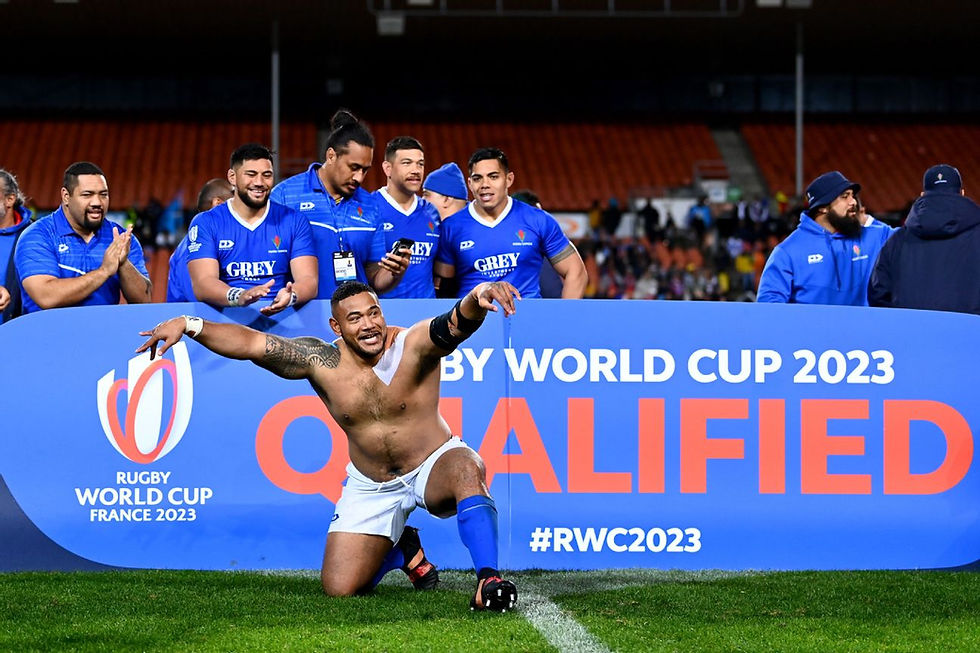Samoan Athletes are one of the best in the world, but their Rugby teams are not
- Martin Anae

- Oct 28, 2023
- 2 min read

It seems that Manu Samoa has played many World Cup qualifying matches. When was the last time the Six Nations, All Blacks, Wallabies, or Springboks had to play in qualifiers?
World Rugby Union has announced the nominations for "Player of the Year." Ardie Savea, the No. 8 from New Zealand, and Bundee Aki, an Ireland International, are among the nominees. Eben Etzebeth, a Springbok lock, and Antoine Dupont, a French halfback, are also in the running.

Let's turn our attention to two exceptional athletes with Samoan heritage, Ardie Savea and Bundee Aki. Both were born and raised in New Zealand, where they developed their rugby skills in school and club teams. They both advanced to the professional level, with Aki having played for Waikato Chiefs before moving to Ireland to join Connacht, and Savea currently excelling with the Hurricanes.

These two Players of Samoan decent demonstrate powerful and robust playing style echoes the traits displayed by Samoan and Polynesian players in previous eras. One would expect that the nations from which their heritage originates should be on par with other tier one rugby nations. However, the reality is far from this ideal; in fact, these nations have never come close. This raises the question: why? How is it that Samoans and Tongans, who possess natural athletic prowess, do not see their national teams reflect their inherent greatness on the rugby field?
Samoa, Tonga, and Fiji have repeatedly faced unjust treatment from the World Rugby Board. The unfortunate narrative of these nations' rugby teams is not a recent issue; it surfaces almost every time they participate in international competitions or tests. The disparities, both on and off the field, are glaringly apparent. Fans express their disappointments online, and sports journalists, while highlighting heroic efforts, cannot negate the persisting challenges. The question that looms large is: when will there be meaningful change? What specific reforms are necessary to elevate these nations to a tier 1 level, where they rightfully belong?

Perhaps the solution lies within the strategic development plans of these countries. In New Zealand and Australia, rugby competitions commence as early as under-5s, with significant investments made in terms of energy, finances, resources, and time dedicated to nurturing the sport. As a result, when these athletes mature and reach a competitive level, they exhibit remarkable skills. Retaining these players becomes challenging, especially when countries of their heritage come calling, seeking to harness their talent.
The fervent hope remains for substantial change, not the perpetuation of the status quo.






Comments